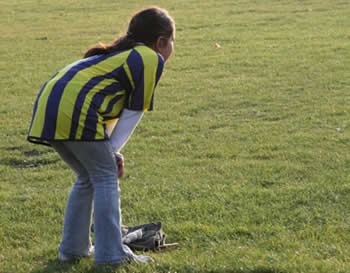Properly conducted one-on-one talks
When is a one-on-one talk at all necessary? How do I lead a talk in the right direction? What happens after the talk? Lots of questions, lots of answers!
1. When do I conduct a one-on-one talk?
In the child and youth area a one-on-one talk is always absolutely unavoidable if the individual child exhibits conspicuous behavioural traits.
Part of such comportment is e.g. frequent absence from practice, bad game performance, problems in social behaviour or lacking social connection to the team. In case of such exemplified peculiarities a one-on-one talk should be sought at once; otherwise resignation from the club is a probability sooner rather than later.
2. Request for a one-on-one talk
If the child or youth asks for such personal discussion, you should immediately comply. “Not now” or “later” are answers indicating a negative attitude. Each child needs to know: If I have a problem, my coach is here for me at all times!
If you seek a one-on-one talk, do not announce it in a grandiose manner. It could render the child unnecessarily insecure. Use a good opportunity to start the personal talk. In case of larger problems, it will not be avoidable to agree on a specific time for the talk.
3. Sequence of a one-on-one talk
Speak with the child calmly and, whenever possible, in a pleasant atmosphere. You should be in a position to accept criticism!
Always (!) begin positively. Build up the kid, recall good game performances or great social behaviour. The child will gladly accept this or even be surprised that you are aware of such things.
After the first smile you should have the child or youth talking. Ask purposefully about team problems or, depending on social closeness, schooling or other private difficulties. Tenet: now the child talks! Listen well and do not interrupt. Enquire but do not corner the child. Build confidence instead, without appearing invasive.
At this point, the problem that you may have with the child should already have been broached (it would be perfect if it came from the child him/herself).
Encourage the child to make own proposals for solutions. Support the child in this and find common solutions. Be careful with large private problems. Soccer coaches are rarely child psychologists. In difficult cases you should definitely try to organise professional help. Parents could consider talks about domestic difficulties as intrusion into family matters.
4. Feedback
The talk should be concludes with a concrete goal. In other words, the mutual solution must now be implemented. To that effect a time slot should be agreed upon.
If the time has expired, a follow-up talk should absolutely take place. The child is waiting for it!
5. Conclusion
It is not a simple matter to be a soccer coach for children and adolescents! To conduct a productive one-on-one talk is very difficult for a trainer without practice in the subject.
If the time has expired, a follow-up talk should take place without fail. The child is waiting for it!
Think about it: it is not just a question of soccer; the team is your task as well. Realistically seen this means:
- One-on-one talks help me do away with team problems!
- One-on-one talks increase motivation! Conduct such an individual talk in the form described once an hour before the start of the game. You will no longer recognise that child!
- One-on-one talks increase team performance.
- By one-on-one talks I learn more about the social structures in the team!
- By one-on-one talks I create the feeling of being socially sheltered!
